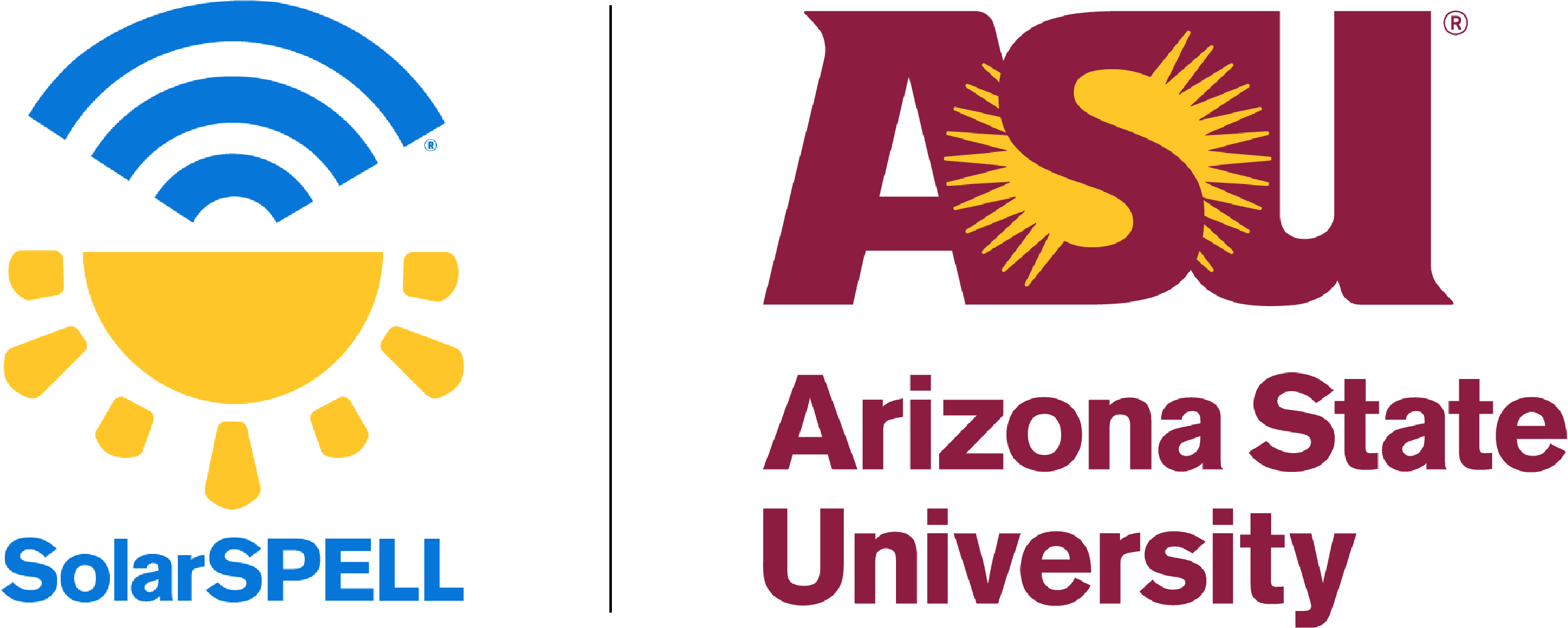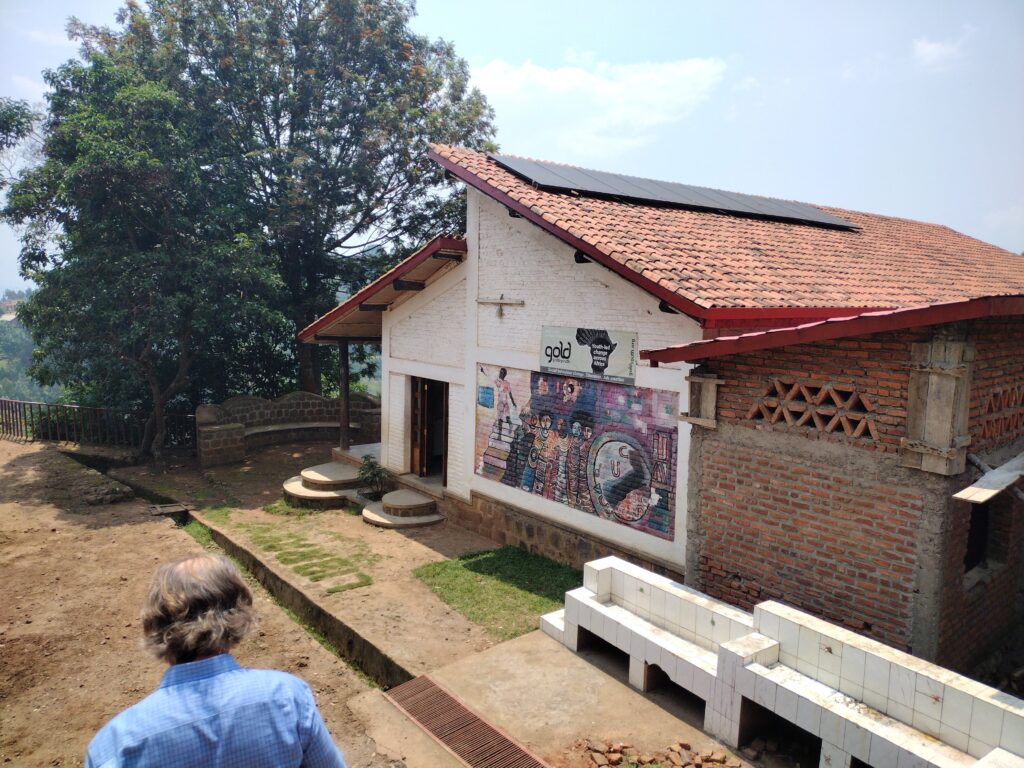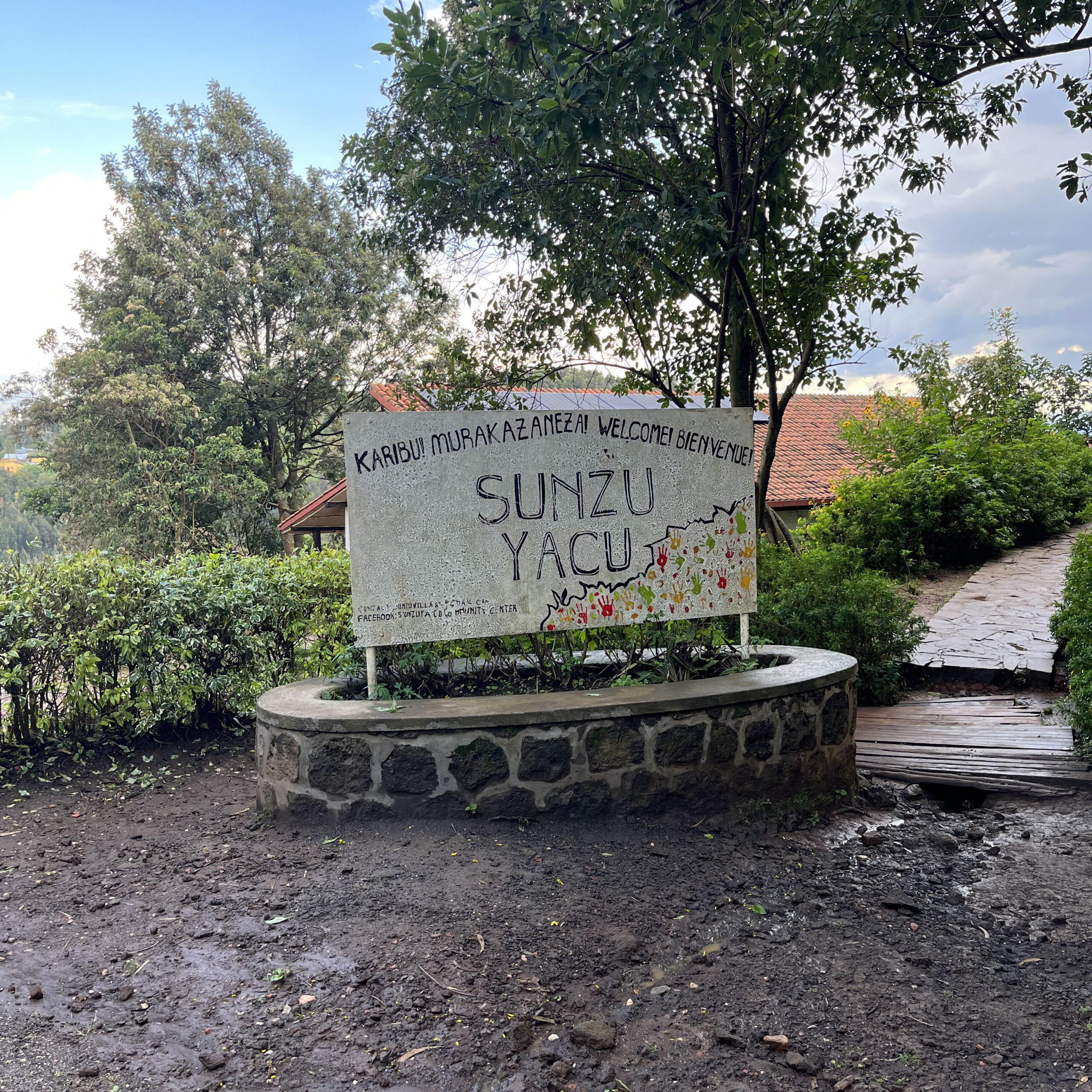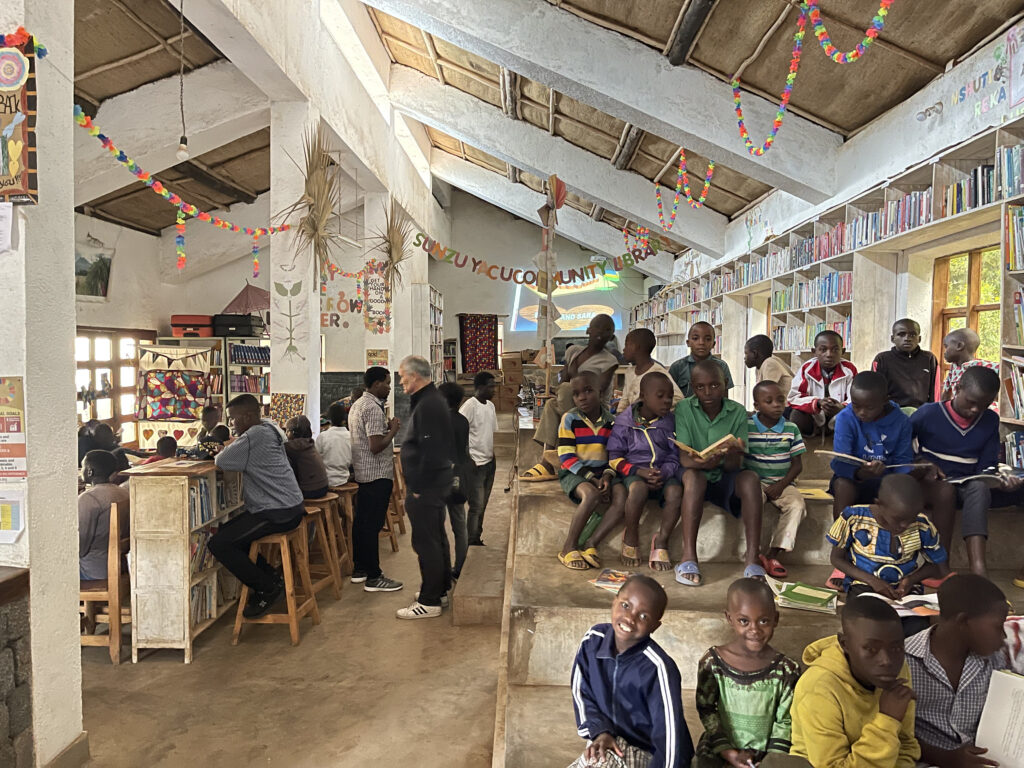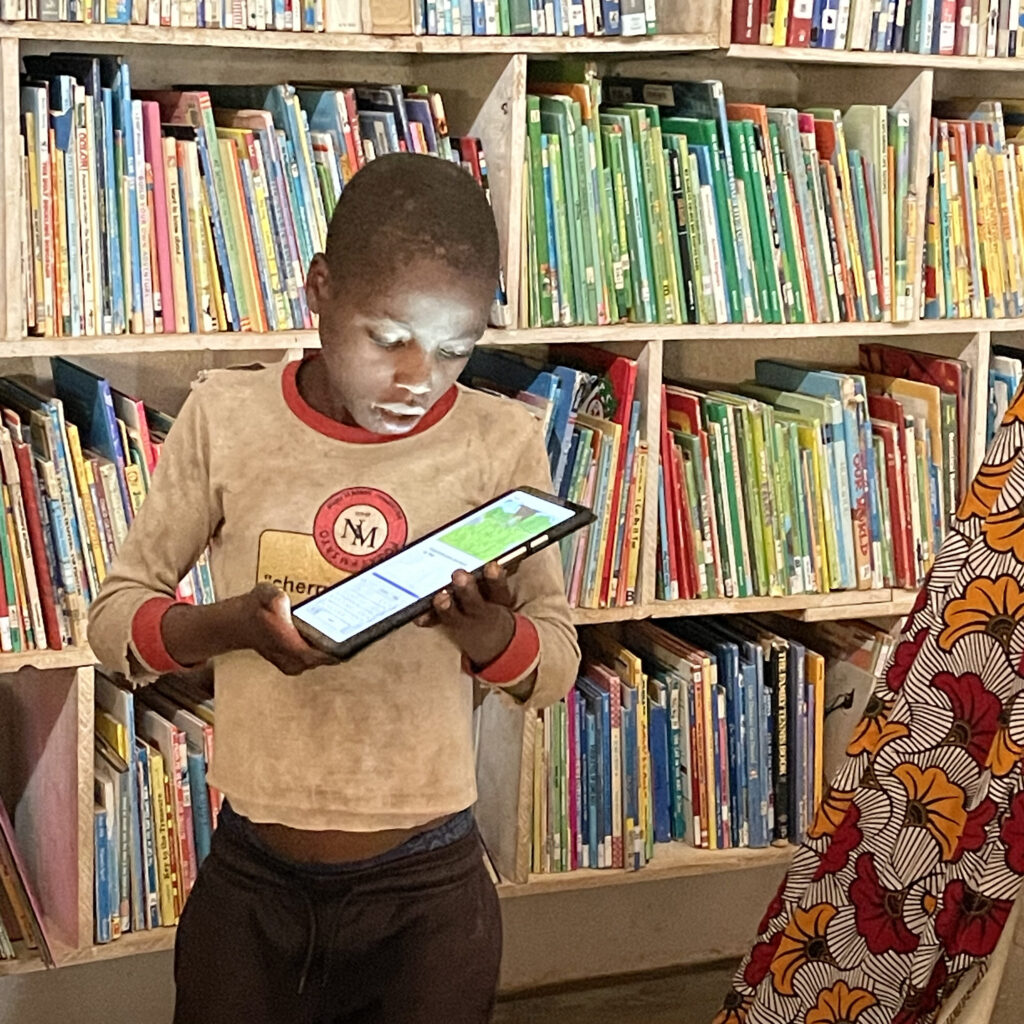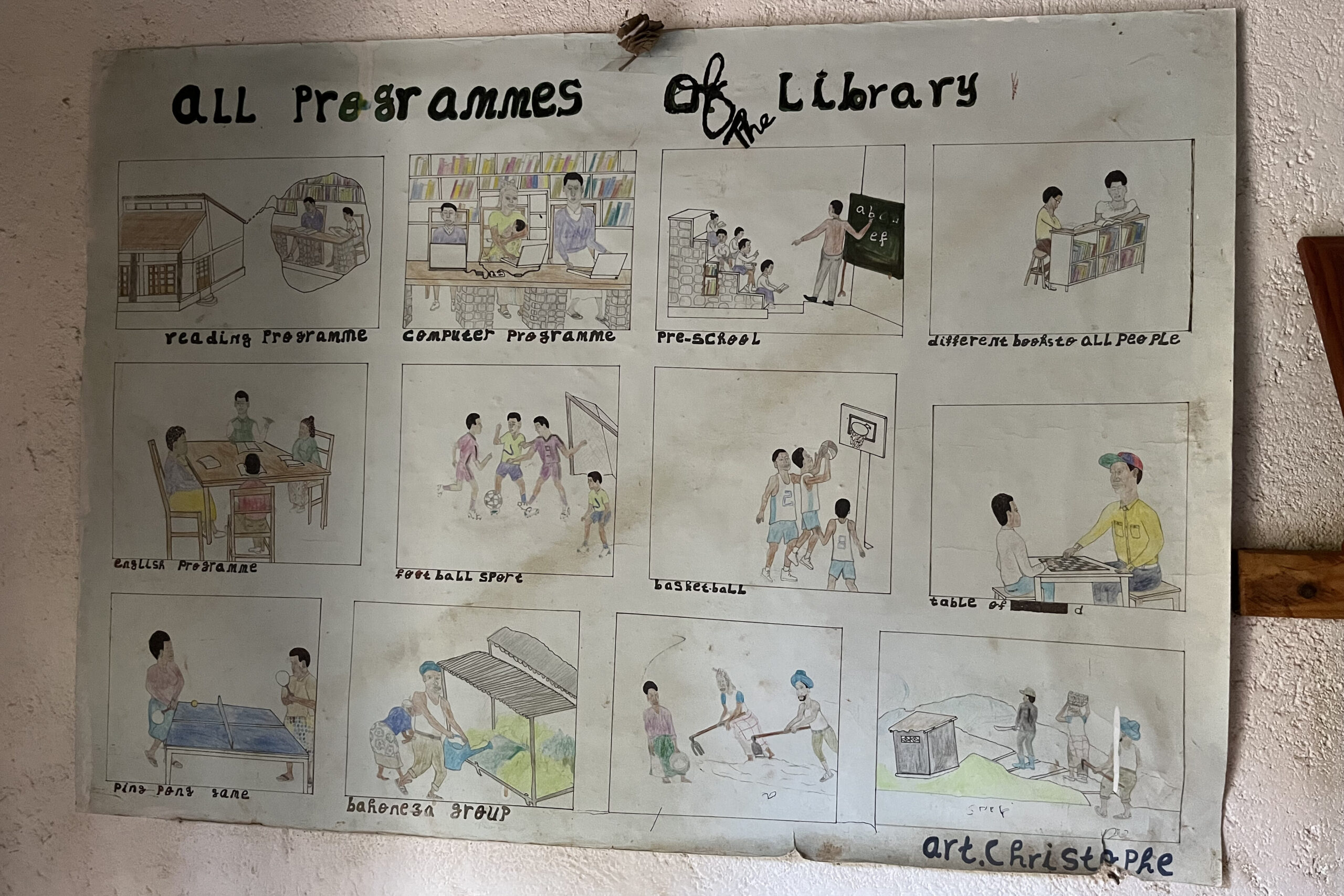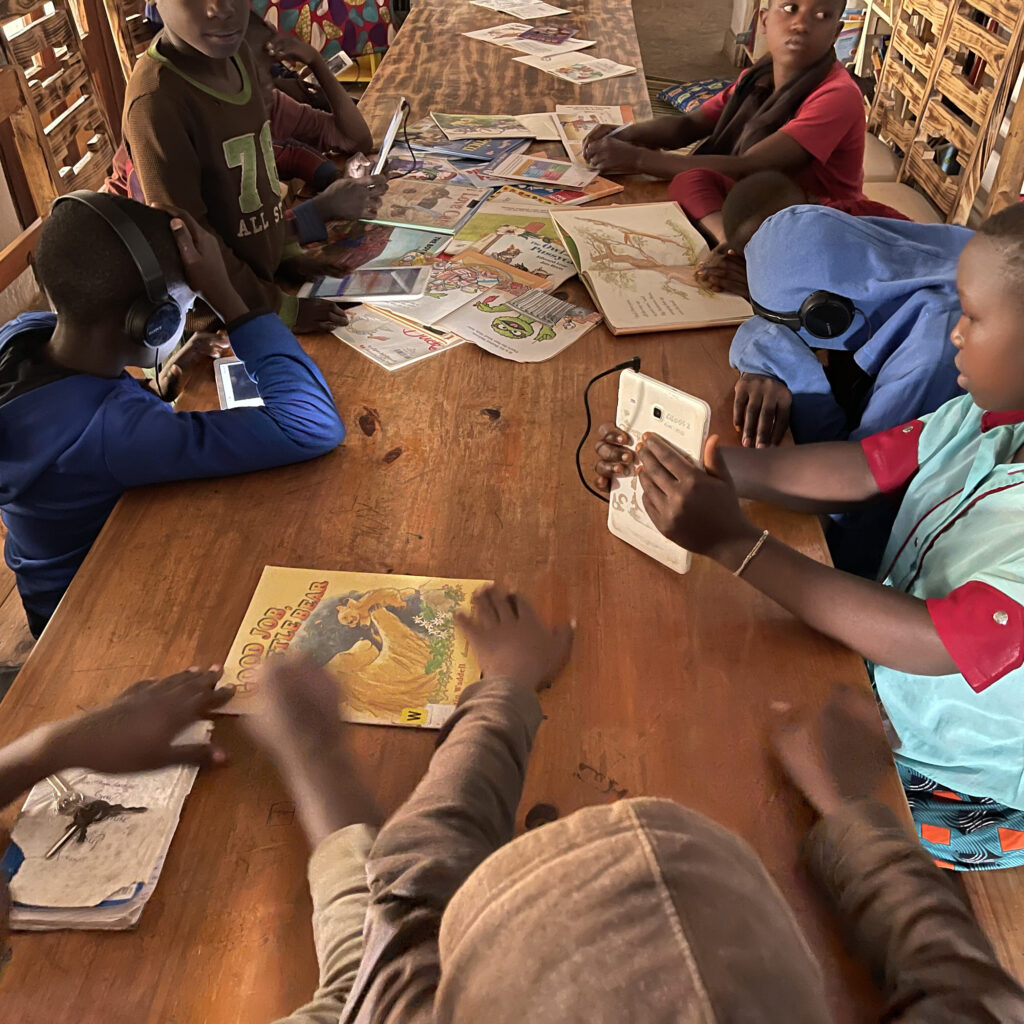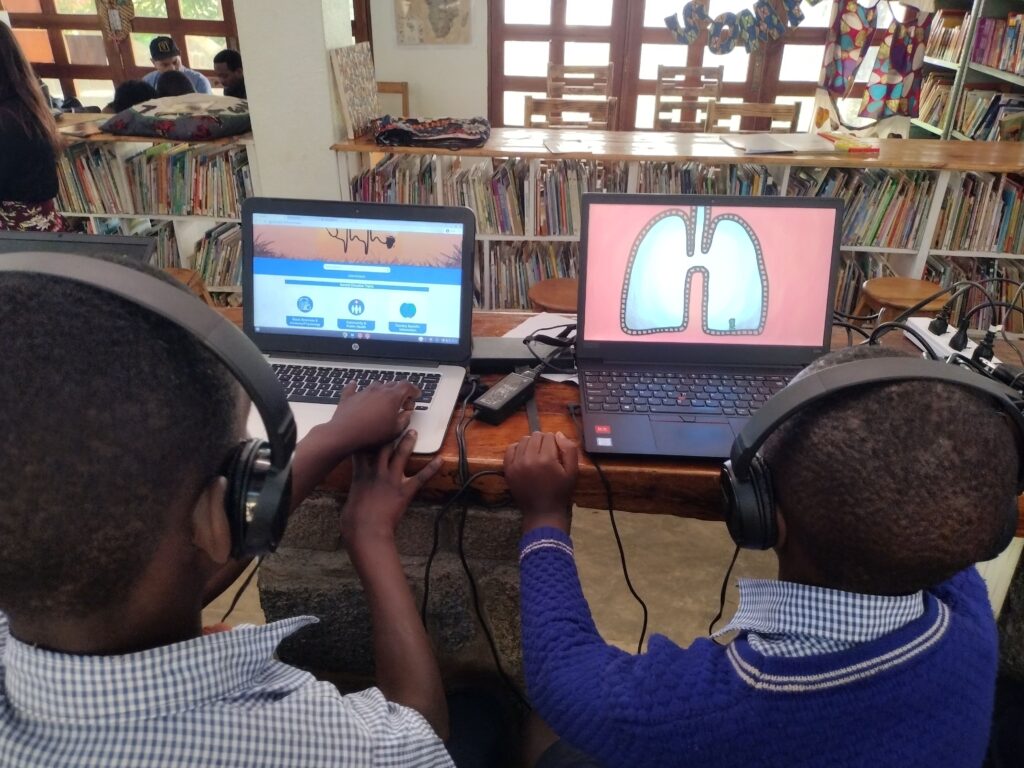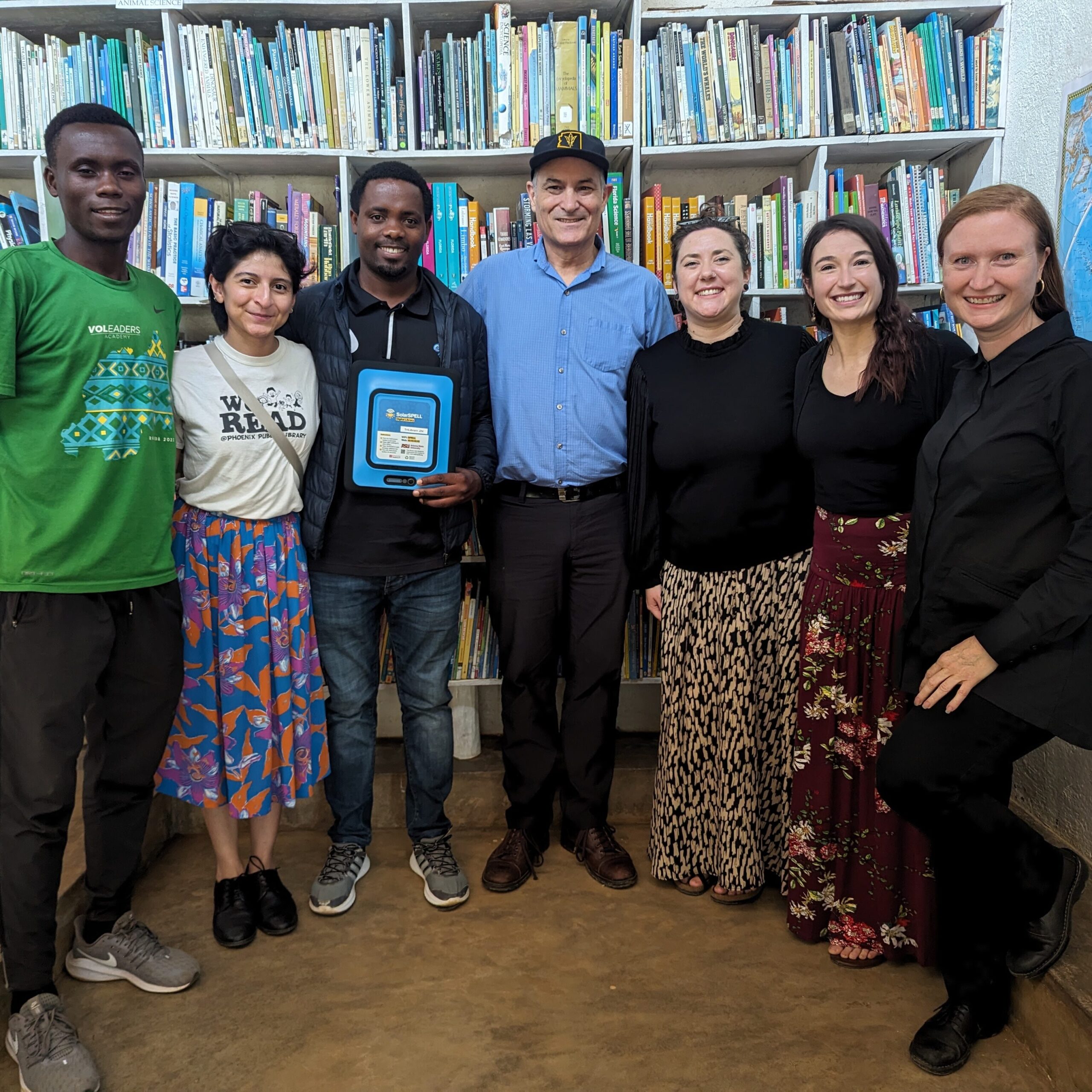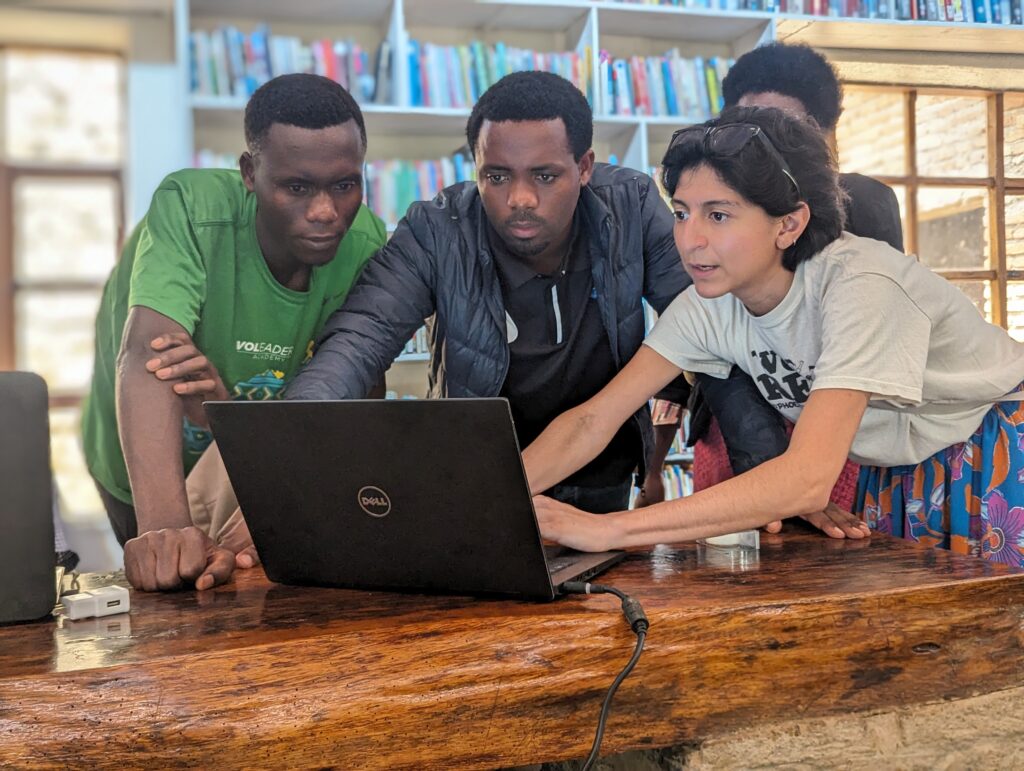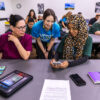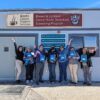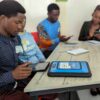Overlooking Rwanda’s Lake Burera sits a library — though ‘sits’ may be too passive a word to describe it. Seven days a week, this library hums with activity. Past the preschool and the athletic field, past the jungle gym and vibrant community mural, there is a special kind of magic under the library’s vaulted ceiling. Primary school students quietly read aloud to one another, laptop keyboards click clack softly as 6th graders practice using Excel, and a hushed murmur can be heard from high school students meeting with mentors preparing for their national exams.
The Sunzu Yacu Community Library first opened its doors in 2016, with the support of Journeyman International, East African Power and Yambi Rwanda, among others. The library is located in a group of villages that have a combined population of 3,500, limited electricity and poor internet connectivity.
Owned and operated by the Chapters Network, Sunzu Library contains 15,000 donated books, as well as a SolarSPELL digital library, which doubled the amount of educational resources Sunzu is able to offer. Crucially, the library is staffed by a dedicated team of three librarians who manage the library’s borrowing system and run weekly programs designed to meet community needs.
One such program is the Candidate Program, in which librarians tutor students who are preparing to take their national exit exams to advance from one school to the next. “If you compare the schools which are not working with the community library, the performance is not at the same level,” said lead librarian Appolinaire Dukuzimana, who goes by Appolo. He also noted that test scores went up within schools after students started receiving coaching, which is an incredibly modest way to phrase it.
Tom Allen, country director for Bridge2Rwanda and a driving force behind the creation of the Sunzu Library, said that before the library was created, nearby Mwiko Primary School had years when no students passed the national exit exam. It is now one of the best schools in the district, with a high number of students who not only pass, but excel on the national exam.
SolarSPELL’s digital librarian Sara Jordan has visited a number of school and community libraries in the countries where we work. “Sunzu has really stood out from what I’ve seen because it’s so close to the core vision of what a library should be — which is, at the end of the day, a community space, meant to uplift and empower the community in multiple ways according to community’s needs,” she said.
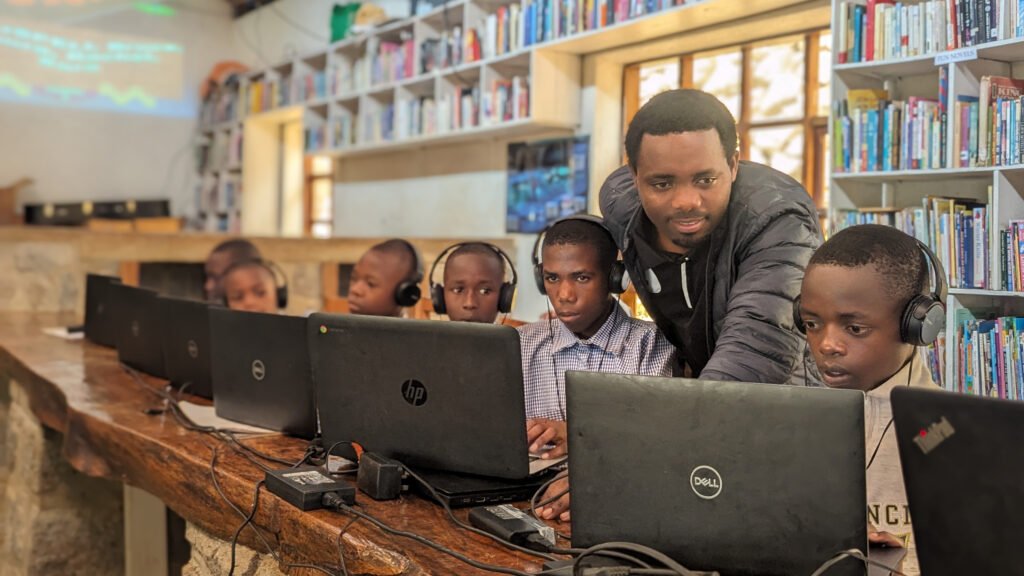
Photo by Rachel Nova / SolarSPELL
In addition to the Candidate Program, the Sunzu Library also runs a Computer Program, an Entertainment Program to engage youth in extracurricular activities, and a Preschool to help prepare young children for primary school. In addition, librarians lead a program called Love Reading, in which students choose a book and meet with a mentor regularly to discuss it. The library then hosts a competition, inviting parents to watch, as participants give a presentation about the book they chose. After attending these competitions, parents have thanked Appolo and his team, noting the growth in their children’s self-confidence and English abilities.
Though much of the programming is aimed at young people, the library serves community members of all ages. The SolarSPELL library, in particular, has had widespread appeal. While students use it to study for class and to practice their English through the Voice of America Let’s Learn English module, adults use it to find agricultural guidance from Foundations for Farming. Appolo noted that many older library patrons don’t understand English, so having access to resources in the national language of Kinyarwanda via the SolarSPELL library is a game changer for them.
This combination of free programming and information that directly addresses community needs draws huge numbers of people to this rural library — about 80 people a day, on average, with more than 100 coming in on weekends and holidays. But the librarians recognize that not everyone has the ability to make the trek, so they developed a program to bring the library to them.
“We want to share this blessing to have SolarSPELL here, so we have an outreach program called Read Riders,” said Appolo. “We take bicycles, and we put tablets and the SolarSPELL in a bag, and we go to read in different schools around the community.” The digital library allows them to share many more books than those they are able to carry and enables teachers to download books right to their phones to use with their students again later.
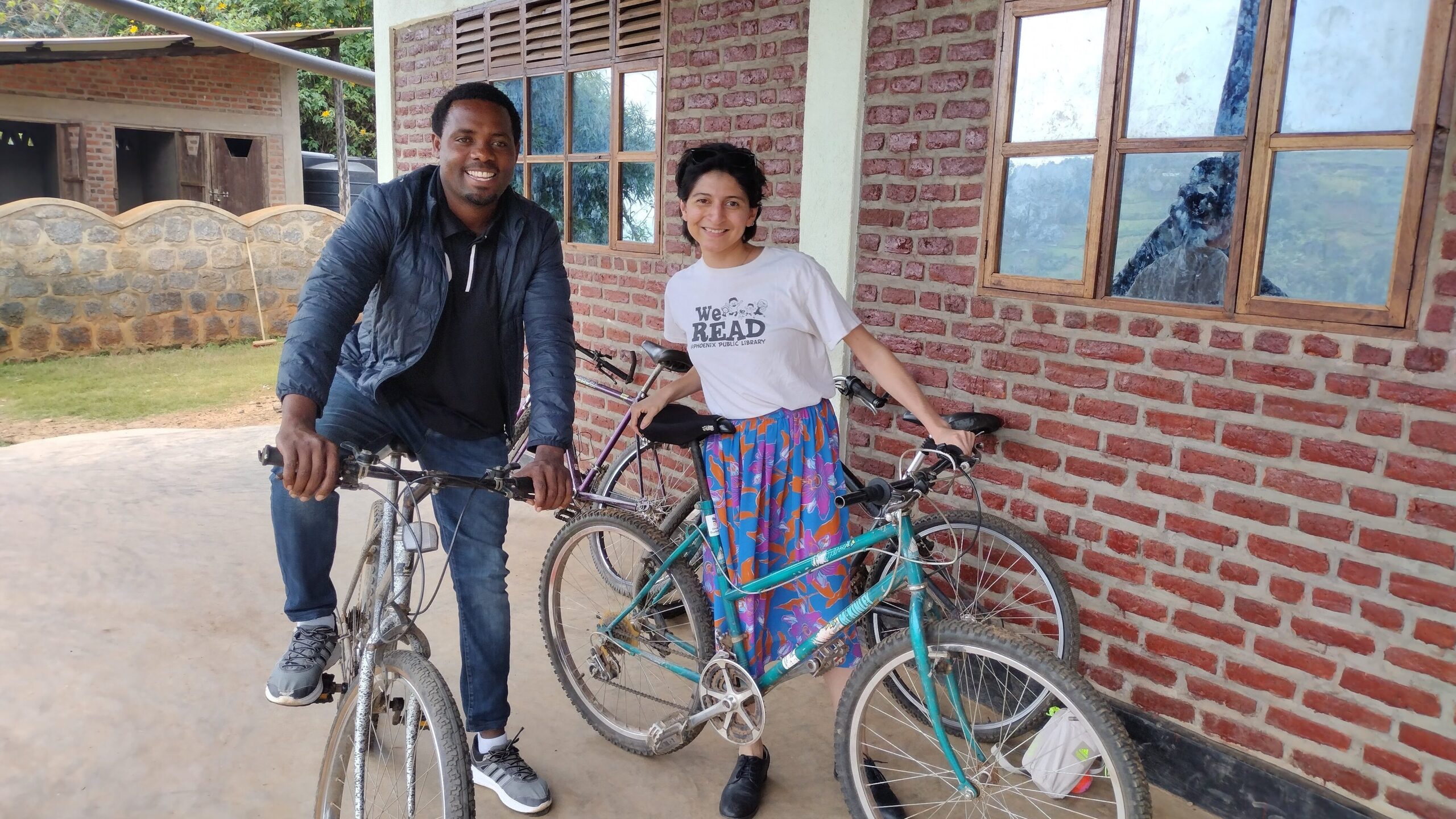
Photo by Cassie Barrett / SolarSPELL
Rwanda has historically had a strong oral tradition, but not a widespread culture of reading. In fact, there were no public libraries in Rwanda until the Kigali Public Library opened in 2012. Since then, more than 120 local libraries have opened throughout the country. For Appolo and his fellow librarians, nurturing a culture of reading is crucial to help open doors for their communities. “While you are reading, you know the world,” said Appolo. “You know more information that can support you in your daily life.”
But the services Sunzu librarians provide go well beyond literacy. Their One Egg program, for example, provides preschoolers with additional nutrition before they start their day. Sara compared this to the Phoenix Public Library’s Kids Cafe. “They know many kids don’t get three square meals a day, so they give kids lunch, which also gets them in the library, checking out books and attending programs,” she said. “It’s another great example of how libraries are a direct response to what community needs are.”
Apollo’s efforts have been so successful that the Rwanda Community Library Forum (RCLF), founded in 2018, recently asked Appolo if he’d move to Kigali, the capital city, to serve as the association’s president. Appolo declined. He grew up in Sunzu and said that he likes supporting his community and serving as a role model for its youth. He still serves as a member of the Library Forum, however, sharing success stories and best practices from Sunzu.
Appolo describes libraries as a tool we can use anywhere to transform people’s lives. But without people like him — people who are trained to help their communities use that tool to its fullest potential — libraries can only do so much. Fortunately Appolo doesn’t plan to leave anytime soon: “It is my pleasure to keep supporting people, to be their role model … It is my dream to see multiple generations know their full potential and translate this into a reality.”
The ASU SolarSPELL Initiative firmly believes that librarians play a crucial role in animating libraries from a passive repository into a force for community empowerment. That’s why we work closely with our partners not only to curate library collections that meet expressed needs but also to train local trainers, so they can help their communities get the most out of SolarSPELL. Learn more about our approach at solarspell.org/about
Sign up to have new blog posts sent straight to your inbox:
